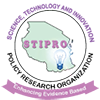Student Industrial Secondments in East Africa: Improving Employability in Engineering
This project is part of the initiative of ‘Strengthening Engineering Ecosystems in sub-Saharan Africa’ (SEESA), comprising a number of projects across Africa, and supported mainly by IDRC, Canada. Our project – lead by STIPRO, with partners in East Africa – focuses on surveying and promoting student industrial secondment (SIS) programs in East African Universities.
While there is a relative shortage of engineers in East Africa, there is also plenty of graduate engineers who do not land employment in their fields. It is also common that foreign agencies involved in engineering-related activities in the region (as private companies, NGOs or international agencies) resolve to hiring expatriate engineers before hiring a satisfying quota of local engineers, citing reasons of little competency and knowledge of industry’s standards among local engineers (particularly young and early-career ones).
To address this competency gap, SIS programs have a positive reputation for preparing college engineering students for employment after graduation. They are often temporary placements of senior college students in relevant industries where they receive direct on-the-job training, with actual work responsibilities. Besides honing their learning by getting to put what they learned in class into practice, SIS placements allow students to gain tacit knowledge and an appreciation for additional important employability skills that are not often taught in academia.
This project is a study of best practices, for evidence-based policy learning, in establishing and running robust engineering SIS programs coordinated between universities and industries – and perhaps with support from the public sector – to serve both industries and students. Using innovation systems and systems thinking for a theoretical framework, the methodology will include surveying, action research (by piloting 4 SIS placements in East Africa, to observe closely and try potential modules), and learning and synthesizing effective experiences of SIS programs from various developing countries (especially ones that achieved recent industrial successes).
For more info, you can contact: info@stipro.or.tz
